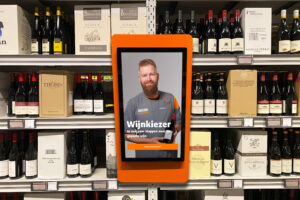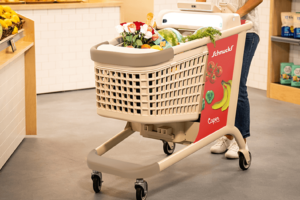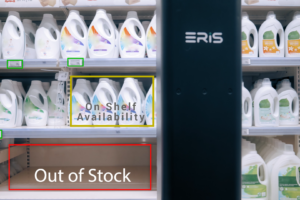“Platform strategies are critical for success”
Ebay or Amazon, Zalando or Otto? Retailers have many options when it comes to an online marketplace where they can sell their merchandise. Success for retailers hinges on making good choices.

Dr. Kai Hudetz, IFH Cologne © iXtenso/Mörs
Dr. Kai Hudetz, CEO of the IFH Cologne (Insitute for retail research), gives tips on what to look for when you make this choice and reveals the importance of online stores and social media as customer service channels.
Dr. Hudetz, should retailers use an online marketplace?
Yes, I believe platform strategies are critical for success, especially if you are starting out as a retailer and want to expand your sales footprint. It’s more difficult to scale your own online store than to grow by selling on an online marketplace. If businesses don’t have money to spend on Google solutions, it becomes increasingly difficult to be noticed by customers in the first place. Online marketplaces provide many tools and opportunities to accomplish this goal.
How do you find the best marketplace to sell your items?
It means doing a lot of research and gathering information. Most marketplaces publish metrics on how many retailers, manufacturers, and products they have. However, this is rarely the deciding factor. The only thing that’s important is the size of the demand side!
Comparing Amazon and eBay. How do they differ?
Amazon is fast becoming the place to buy life’s necessities. All products have the same description. The box in the top right-hand corner lists prices and availability. Ultimately, this is what it all comes down to. The customized approach is eliminated. Meanwhile, I believe eBay customers tend to look for items that are somewhat more exotic or unique, and they also use the platform to compare different sellers. And then there are niche and industrial distribution marketplaces that cater to different topics and specific products of interest.
How do you sell successfully on marketplaces?
The trick is to be as unique as possible and to determine the optimal product mix to be profitable in the marketplace. Generally, these tend to be more exotic items as opposed to mainstream products. The key is to find the perfect niche in the market.
Do you have any other tips on finding a great product-market fit?
Retailers need to study how and where their products and related categories fit in the marketplace and ask themselves whether they are competitive in this environment and if this marketplace is the right fit for their business. Can you differentiate yourself from others? Are you in a price war and how intense is it?
Having said that, there is a conflict of objectives between the marketplace operator and the entity that wants to be a successful seller. Marketplaces actually have a conflict of interest because the more product choices they offer, the more attractive they are to customers.
There is a widespread fear of becoming too overly dependent on one marketplace. Is this worry justified?
Absolutely. I don’t want to paint a bleak picture, but there are documented cases where accounts were blocked or suspended by marketplaces. This can put someone who depends on this marketplace and doesn’t have revenues for several weeks in a very difficult situation.
Can a marketplace operator block accounts for no reason?
They cannot block accounts for unsubstantiated claims. However, it can be somewhat difficult for major large companies to clarify the issue and determine that the account should not have been blocked in the first place. Yet this really doesn’t help the seller who lost money in the process.
What’s your advice?
Small businesses should rely on one platform, but not be completely dependent on it. It is critical to also find other ways to reach customers. You must build a strong brand identity to where customers explicitly look for you on the marketplace, regardless of price and delivery.
What other ways or channels are you referring to in this case?
I suggest having your own online store and utilizing social media for your business. The consumer path from social media to purchase has become ever shorter in the past few years. This is a great opportunity for sellers who know how to present themselves on these types of channels. Many bloggers have managed to run successful one-man enterprises this way. Another great idea is to use social media influencers to promote your retail business. This allows retailers to avoid price comparisons, build trust and boost interest.
The online store will become a hygiene factor for anyone who wants to achieve success in business in the next ten to fifteen years. You have to be increasingly smarter to get your piece of the pie.
Interview: Natascha Mörs
First published on iXtenso – Magazine for Retailers




















